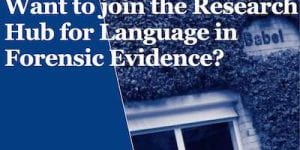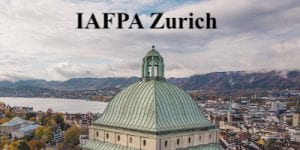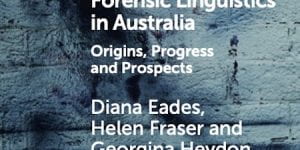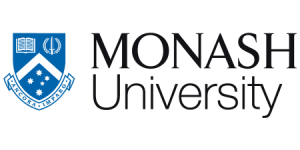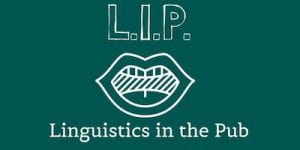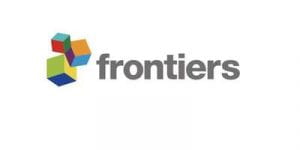Helen Fraser
-
Guest blogger: Emotions Affecting Voice Recognition in Criminal Cases by Emma Keith
Emotions Affecting Voice Recognition in Criminal Cases: One Small Phonetically-Grounded Investigation Introduction Recognising a speaker by their voice might seem like second nature. If you know a person well at all, you probably have a pretty good idea of what they sound like, and you might even be able to imagine what words would sound […] -
Guest blogger: ‘Humans vs machines’ by Will Somers
This post is a small, informal follow-up experiment to my previous blog post in August, where I examined the ability of the Whisper automatic speech recognition system (ASR) to transcribe neologisms and colloquial language. The results of the previous experiments demonstrated this artificial intelligence system was rather ineffective in transcribing neologisms and colloquial language. In particular, […]blogs.unimelb.edu.au/language-forensics/2023/11/12/guest-blogger-humans-vs-machines-by-will-somers
-
The Hub is hiring!
The Research Hub for Language in Forensic Evidence (School of Languages and Linguistics, University of Melbourne) has just advertised two five-year Level B research-only positions. Please find information about the Research Fellow in Forensic Linguistics positions at the link below. The application deadline is Fri 1 December, 2023. https://jobs.unimelb.edu.au/en/job/914515/research-fellow-in-forensic-linguistics-multiple-opportunities Read on for some background about […]blogs.unimelb.edu.au/language-forensics/2023/11/11/the-hub-is-hiring
-
Key references from the Hub
Eades, D., Fraser, H., & Heydon, G. (2023). Forensic Linguistics in Australia: Origins, progress and prospects. Cambridge: Cambridge University Press. McMahon, M., & Fraser, H. (2023). Transcription of indistinct forensic audio: Time for reform. Law Institute of Victoria Journal, (August), 20–23. Fraser, H. (2023). Applied phonetics and phonology. In L. Wei, Z. Hua, & J. […]blogs.unimelb.edu.au/language-forensics/2023/10/26/key-references-from-the-hub
-
Video: Enhancing and transcribing indistinct forensic audio (AAFS presentation)
On 6 September 2023, Helen Fraser presented to lawyers and forensic scientists at the Victorian Chapter of the Australian Academy of Forensic Sciences. Here’s the video – and relevant references are below. About the Research Hub for Language in Forensic Evidence McMahon, M., & Fraser, H. 2023. Transcription of indistinct forensic audio: Time for reform. […] -
Guest Blogger: ‘Automatic Speech Recognition Models, Neologisms, and Colloquial Language’ by Will Somers
About the author – Will Somers I am a third year Bachelor of Arts student majoring in linguistics and criminology at the University of Melbourne. I have a particular interest in transcription and the potential for artificial intelligence models to be used to advance the efficiency and accuracy of the transcription process. Introduction With the […] -
Conference: International Association for Forensic Phonetics and Acoustics – Zurich
The IAFPA conference in Zurich has just finished – and what a great experience it was. Despite the 35-degree heat, participants minds were fully alert, and the program was packed with excellent presentations from established and emerging scholars, including an unprecedented degree of student participation. As usual, the Hub’s colleagues at University of Zurich’s Centre […] -
Guest blogger: “The reliability of speechreading as forensic evidence” by Catherine Hill
Earlier this year, Australian linguistics professor, Helen Fraser, received a phone call asking whether she could recommend a lipreader to transcribe CCTV footage for use as evidence in the court of law. Fraser told the caller she was unable to do so, but found it an interesting question, so later asked me to investigate the […] -
Video: ‘Enhancing forensic audio’, a presentation at ISCA SPSC
Helen Fraser delivered a webinar to the International Speech Communication Association’s Special Interest Group on Security and Privacy in Speech Communication on 12 June. We had a very engaged and responsive audience, some of whom will be taking the issues forward via ongoing discussion – let us know if you would like to be involved. […]blogs.unimelb.edu.au/language-forensics/2023/06/15/video-enhancing-forensic-audio
-
‘Forensic Linguistics in Australia’ – free download till 7 June 2023
A new title in Cambridge Elements in Forensic Linguistics is available for free download till 7 June 2023, namely Forensic Linguistics in Australia: Origins, Progress and Prospects by Diana Eades, Helen Fraser and Georgina Heydon. Here is the book announcement circulated by the authors: Cambridge Elements is a newish monograph series publishing concise, original, succinct, authoritative, peer-reviewed, scholarly work […] -
Videos: Automatic speech recognition as a solution for indistinct forensic audio
(Last week the Hub gave a presentation at Monash University. Thanks to Prof Kate Burridge, Dr Howie Manns and their colleagues in Monash Linguistics for a wonderful welcome and a delicious lunch. Here are videos of the sections by Debbie Loakes and Lauren Harrington (who has been visiting the Hub from the University of York – now heading […] -
Upcoming event: Join the Hub in the Pub!
The Hub is happy to be presenting in the famous and fun Linguistics in the Pub series at the famous and fun Naughton’s Hotel on Tuesday 28 March 6-8pm. Why not come along and enjoy a drink and some interesting discussion with us? Misunderstanding mishearing: Why linguistic science is needed to cure serious injustice in our […]blogs.unimelb.edu.au/language-forensics/2023/03/19/upcoming-event-join-the-hub-in-the-pub
-
Capturing Talk
The Hub will be participating in a Frontiers Research Topic called ‘Capturing Talk: The Institutional Practices Surrounding the Transcription of Spoken Language‘ with colleagues in the UK and the Netherlands. About the Research Topic Across a range of institutional settings, ‘practitioners’ and ‘professionals’ are eliciting and capturing spoken talk from ‘clients’ (Sarangi 1998), transcribing that […]blogs.unimelb.edu.au/language-forensics/2021/03/01/capturing-talk
-
Symposium: Perspectives on transcription in criminal justice
Thursday 11 March 2021 (morning in the UK, evening in Eastern Australia). A free online symposium examining the production and use of transcripts in criminal justice. -
A research hub is launched
The Research Hub for Language in Forensic Evidence was officially launched on Friday, 30th October 2020, by Professor Russell Goulbourne, Dean of the Faculty of Arts at the University of Melbourne. Although it had to take place over zoom due to the pandemic, the launch was a very happy occasion. Please enjoy the video below (9 […]blogs.unimelb.edu.au/language-forensics/2021/01/07/a-research-hub-is-launched


